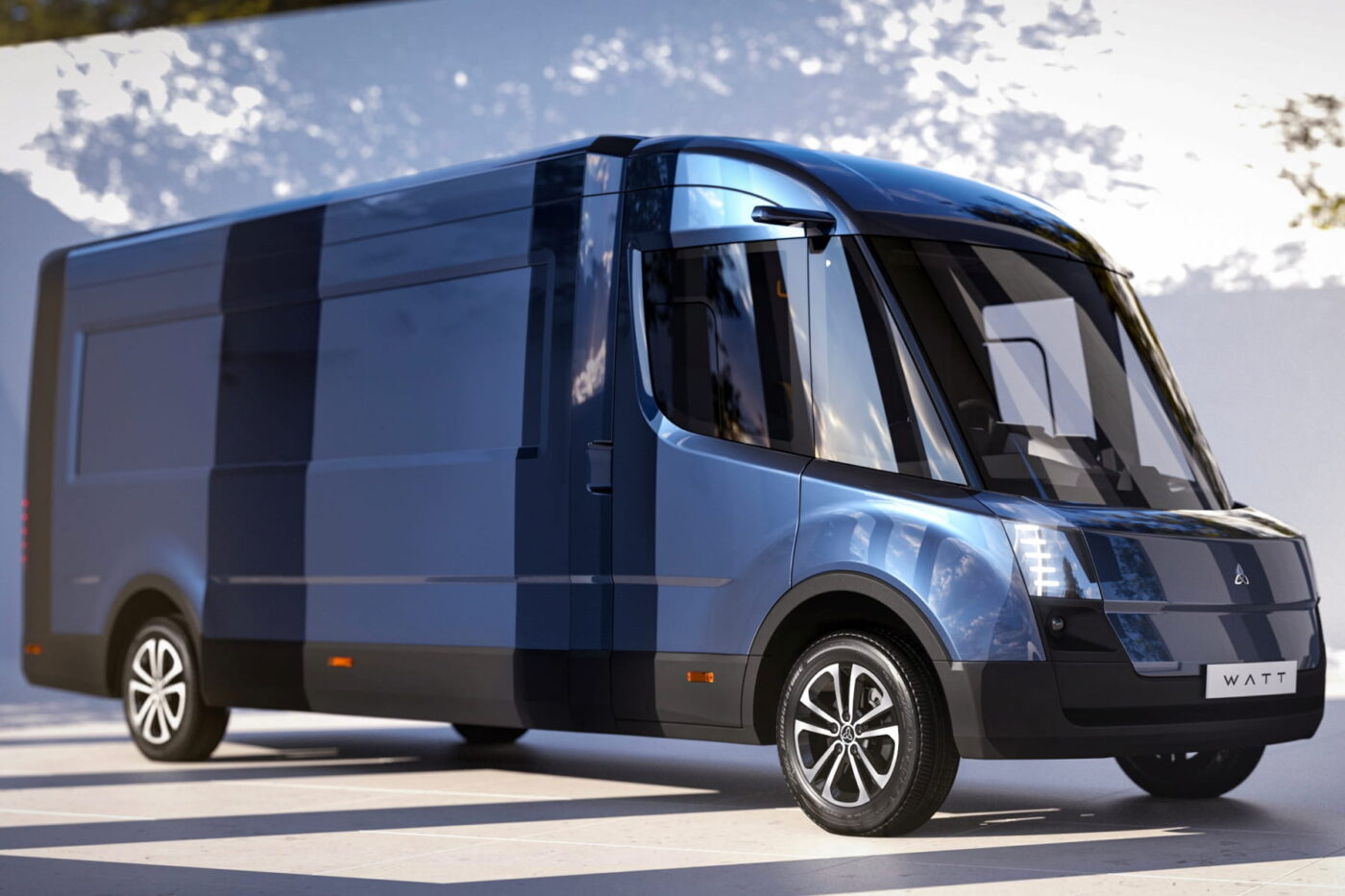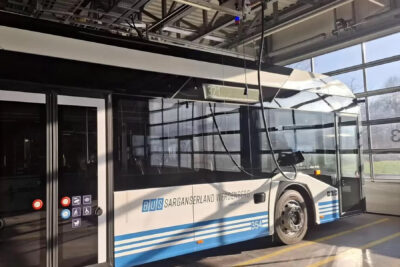WEVC reveals eCV1 electric van in production guise
The production WEVC eCV1 sits on the Passenger And Commercial EV Skateboard (PACES) platform, which meets ISO regulations and European Small Series Type Approval crash standards. The electric van integrates its battery modules into its primary structure instead of a pack, which gives it more stiffness, saves weight, and maximises payload capacity.
The WEVC eCV1 is available in 3.5-tonne and 4.5-tonne versions with class-leading payload capacities, with the latter capable of carrying up to 1,750 kg. WEVC has yet to reveal the details about its performance, driving range, and charging time. However, like in the prototype version, the batteries may have an energy storage capacity of 110 kWh. In that case, the new electric van may deliver a range of around 370 km.
The production WEVC eCV1 has a slightly different design from the concept shown at the 2023 CV Show. It is a new wide-body van, which gives customers the benefits of a Luton conversion, the largest type of van they can drive with a standard license on UK roads. The final version of the electric light commercial vehicle (LCV) features a low access height like a vehicle equipped with an air suspension, which makes its body more aerodynamic.
Like the initial prototype, the production version stands out from other electric vans with its unique driving position, which is in the centre. This allows the driver to operator exit from the kerbside, whichever side of the road that may mean. WECV says that the changes it made for the final model have led to an “unrivalled visibility” for the driver. It claims that the viewing angle in the front of the new electric van is class-leading.
Customers can configure the WEVC eCV1 with a walk-through two-seater cabin or without a sliding bulkhead door and offset three-abreast seating. In addition to the flexible cabin layout, the production model boasts an elevated roof height, which makes ingress from and egress to either side easy for the driver. On a busy London street, for example, this would mean that the driver would not need to waste their time waiting for a gap in traffic to exit the vehicle.
WECV is currently conducting a durability testing programme of the eCV1 and it could commence deliveries in 2026.





0 Comments